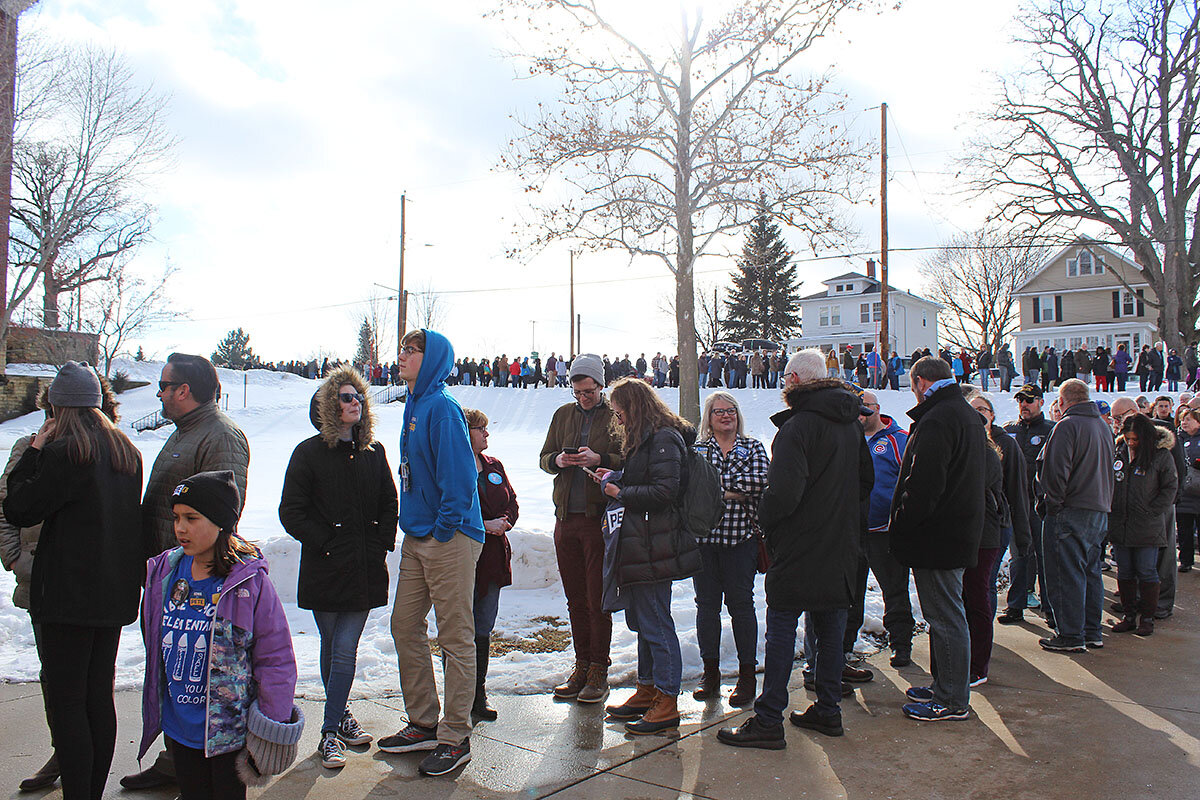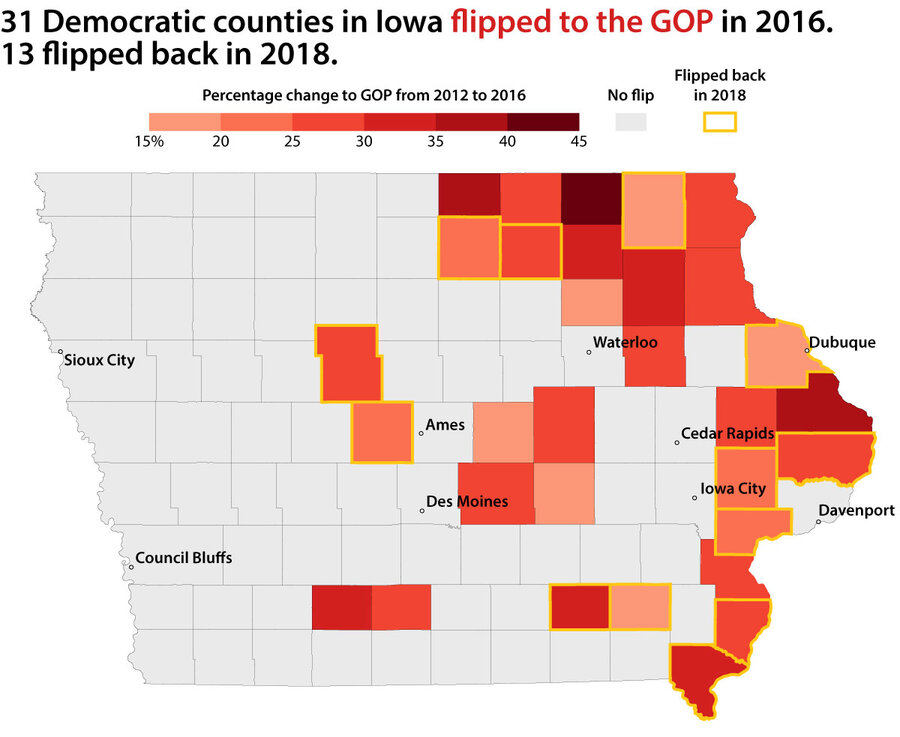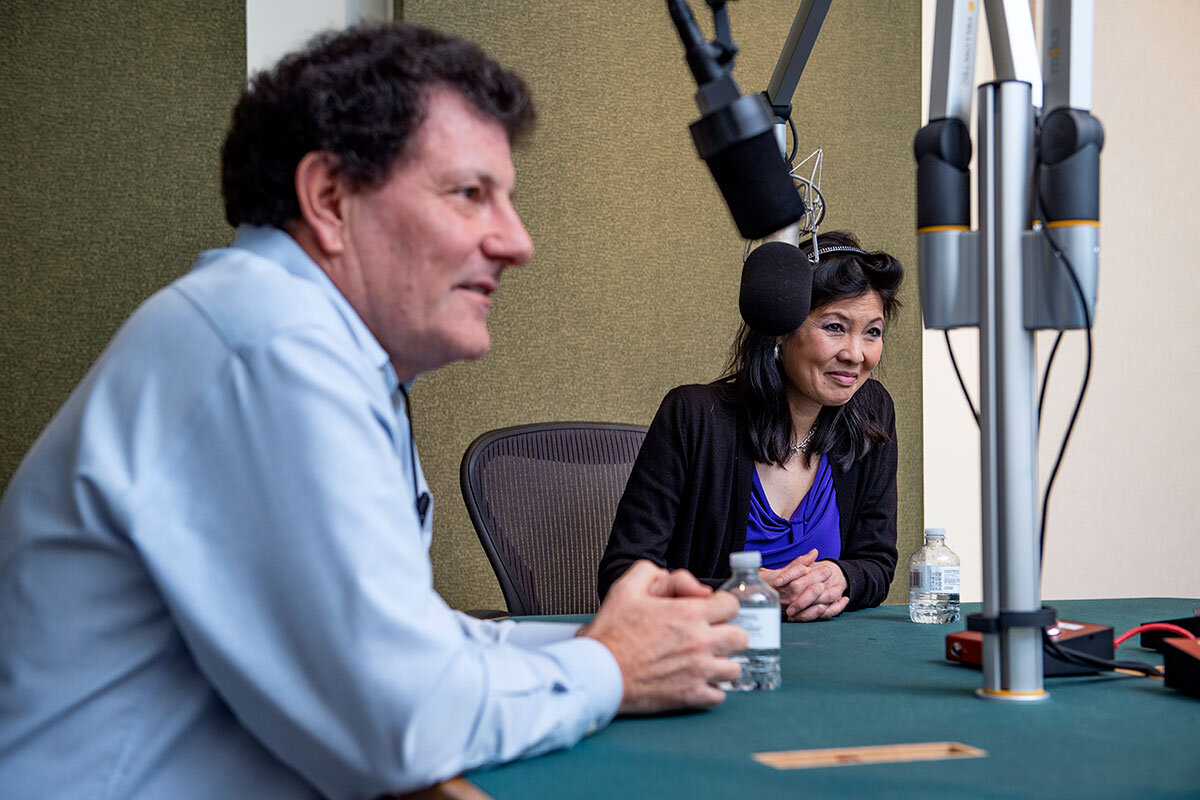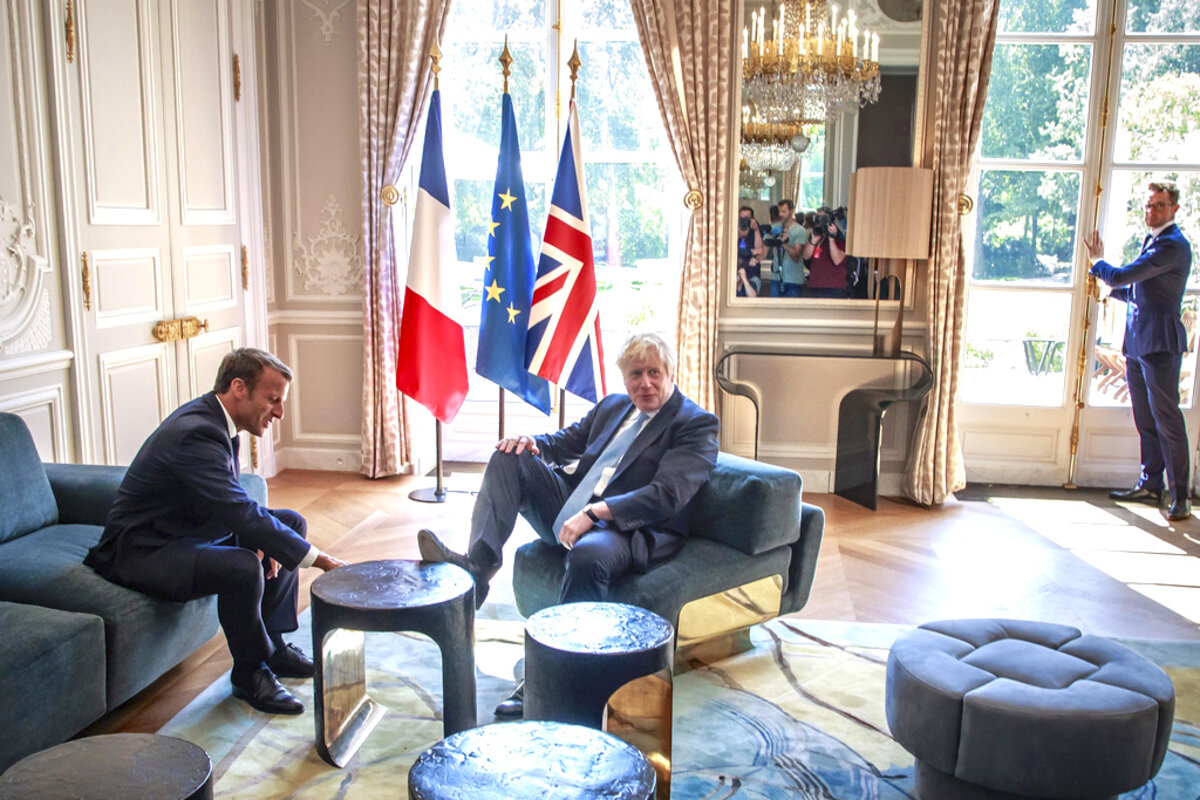We’ve all heard about the supposed animosity between reporters and mainstream Americans. But Monitor writers in Iowa said they experienced a deep reward of their work there: meeting people willing to engage with them.
Monitor Daily Podcast
- Follow us:
- Apple Podcasts
- Spotify
- RSS Feed
- Download
 Clayton Collins
Clayton Collins
Welcome back. Today we look at engagement in Iowa, identity in Israel, responsiveness in Minneapolis, order and disorder in Rwanda, and hope that’s both local and national. But first, it’s a good moment to think about how we push for the political outcomes we want.
One partisan process, the Senate impeachment trial, wraps up. Today intraparty challengers get real in Iowa. The points of contention are familiar: health care, wages, climate, more.
Never mind the politicians. Can individuals better frame these debates? Can we assert facts without judgment?
On a biggie – climate change – Katharine Hayhoe has “found a strategy that works,” reports Harvard Business Review: “focusing on the heart – that is, what we collectively value – as opposed to the head.”
Dr. Hayhoe, a climate scientist we’ve interviewed in the past, prescribes this tack: “Don’t start with fear, judgment, condemnation, or guilt. ... [S]tart by connecting the dots to what is already important to both [sides], and then offer positive, beneficial, and practical solutions that we can engage in.”
That tends to run against party lines – even against how some say humans are wired.
“Motivated reasoning,” notes the journalism-trend watcher Nieman Lab, “is what social scientists call the process of deciding what evidence to accept based on the conclusion one prefers.”
Dismissing the views of the “other” is easy. Not dismissing them can mean sacrificing a dearly held identity. “This is not just a problem for conservatives,” Nieman notes. “[L]iberals are less likely to accept expert consensus on the possibility of safe storage of nuclear waste or on the effects of concealed-carry gun laws.”
Respect is essential. What Dr. Hayhoe says about her issue – even as some deny its existence – matters broadly. “As humans, we want to be part of a solution,” she says. “That is part of what gives us hope ... the idea that we’re actually doing something good for the world.”











